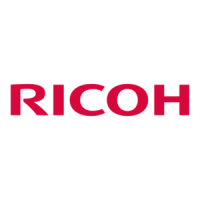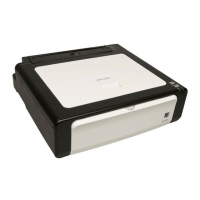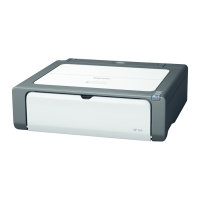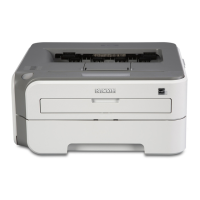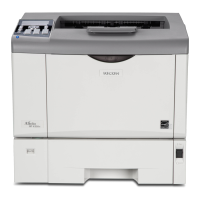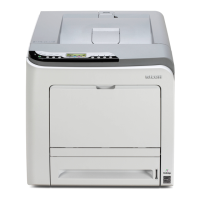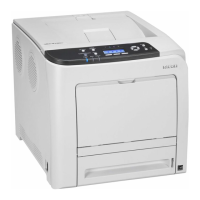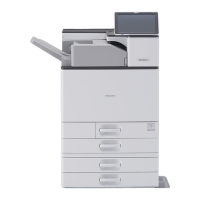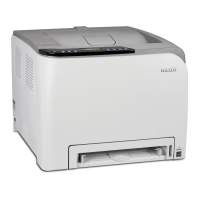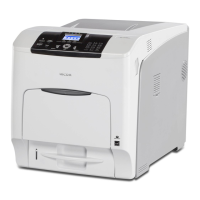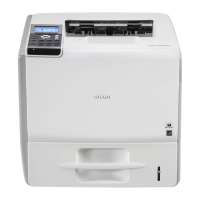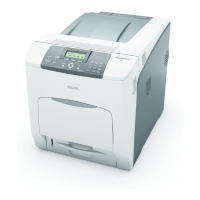Safety and Ecological Notes for Disposal
1. Never incinerate toner bottles or used toner. Toner dust may ignite suddenly when exposed to an
open flame.
2. Dispose of used toner, developer, and organic photoconductors in accordance with local
regulations. (These are non-toxic supplies.)
3.
Dispose of replaced parts in accordance with local regulations.
4. When keeping used lithium batteries in order to dispose of them later, do not put more than 100
batteries per sealed box. Storing larger numbers or not sealing them apart may lead to chemical
reactions and heat build-up.
• The danger of explosion exists if a battery of this type is incorrectly replaced.
• Replace only with the same or an equivalent type recommended by the manufacturer. Discard
used batteries in accordance with the manufacturer's instructions.
Laser Safety
1. The Center for Devices and Radiological Health (CDRH) prohibits the repair of laser-based optical
units in the field.
2. The optical housing unit can only be repaired in a factory or at a location with the requisite
equipment.
3.
The laser subsystem is replaceable in the field by a qualified Customer Engineer.
4. The laser chassis is not repairable in the field.
5. Customer engineers are therefore directed to return all chassis and laser subsystems to the factory
or service depot when replacement of the optical subsystem is required.
• Use of controls, or adjustment, or performance of procedures other than those specified in this
manual may result in hazardous radiation exposure.
• Turn off the main switch before attempting any of the procedures in the Laser Unit section. Laser
beams can seriously damage your eyes.
12
